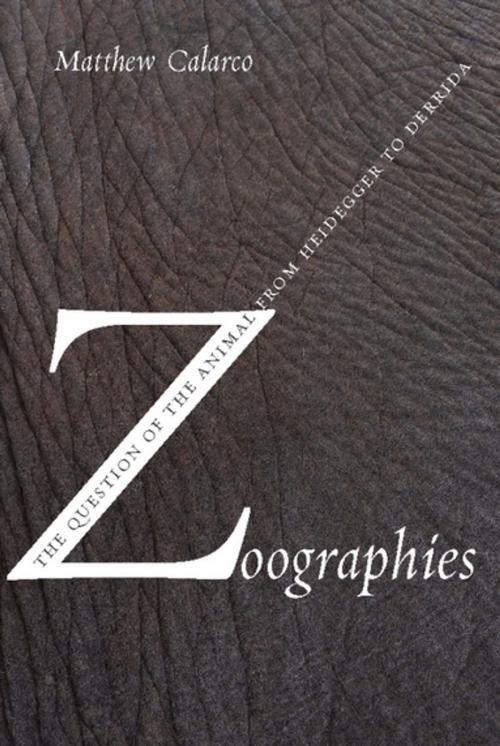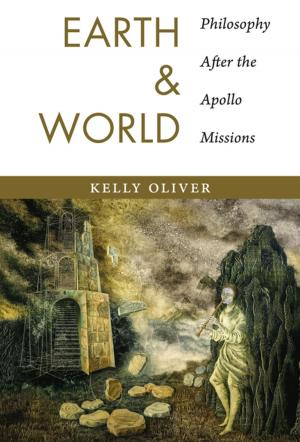Zoographies
The Question of the Animal from Heidegger to Derrida
Nonfiction, Religion & Spirituality, Philosophy, Social & Cultural Studies, Social Science| Author: | Matthew Calarco | ISBN: | 9780231511575 |
| Publisher: | Columbia University Press | Publication: | July 8, 2008 |
| Imprint: | Columbia University Press | Language: | English |
| Author: | Matthew Calarco |
| ISBN: | 9780231511575 |
| Publisher: | Columbia University Press |
| Publication: | July 8, 2008 |
| Imprint: | Columbia University Press |
| Language: | English |
Zoographies challenges the anthropocentrism of the Continental philosophical tradition and advances the position that, while some distinctions are valid, humans and animals are best viewed as part of an ontological whole. Matthew Calarco draws on ethological and evolutionary evidence and the work of Heidegger, who called for a radicalized responsibility toward all forms of life. He also turns to Levinas, who raised questions about the nature and scope of ethics; Agamben, who held the "anthropological machine" responsible for the horrors of the twentieth century; and Derrida, who initiated a nonanthropocentric ethics. Calarco concludes with a call for the abolition of classical versions of the human-animal distinction and asks that we devise new ways of thinking about and living with animals.
Zoographies challenges the anthropocentrism of the Continental philosophical tradition and advances the position that, while some distinctions are valid, humans and animals are best viewed as part of an ontological whole. Matthew Calarco draws on ethological and evolutionary evidence and the work of Heidegger, who called for a radicalized responsibility toward all forms of life. He also turns to Levinas, who raised questions about the nature and scope of ethics; Agamben, who held the "anthropological machine" responsible for the horrors of the twentieth century; and Derrida, who initiated a nonanthropocentric ethics. Calarco concludes with a call for the abolition of classical versions of the human-animal distinction and asks that we devise new ways of thinking about and living with animals.















